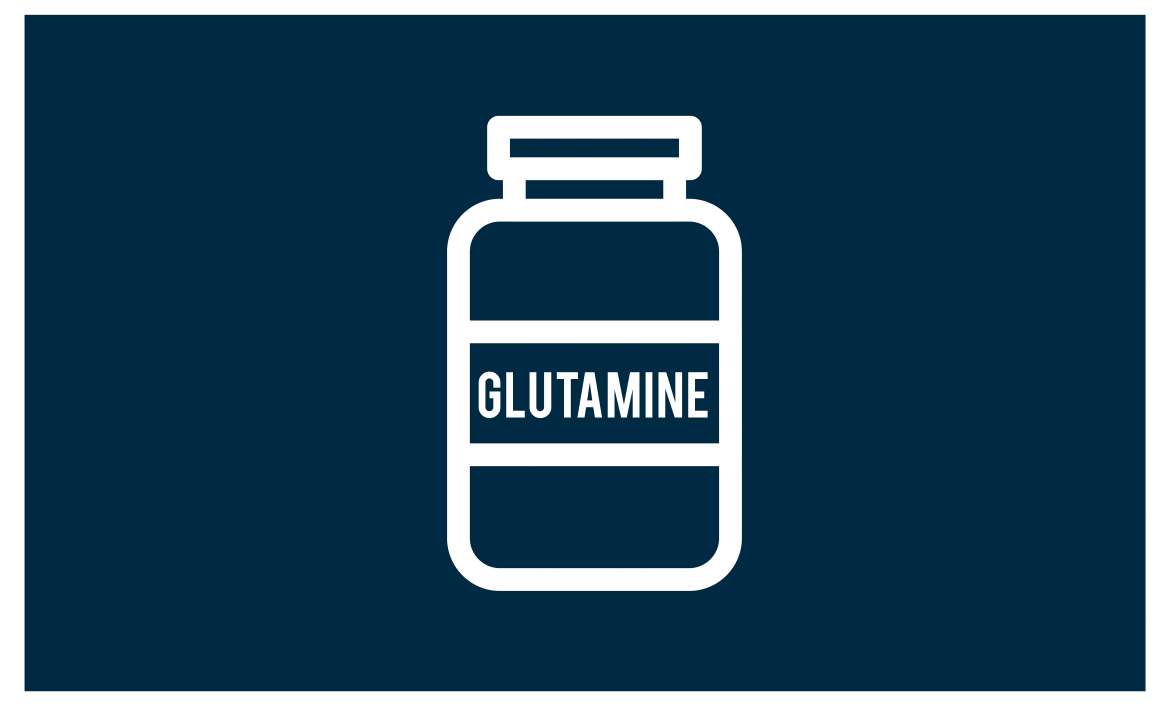Glutamine is an amino acid, which is found naturally in the body. Glutamine’s primary functions are in digestion and immunity support. It is also important for providing nitrogen and carbon to various cells in the body. Besides that it is necessary to create other amino acids and glucose.
Glutamine is generally classified as a semi conditional amino acid, which means that even though our body can normally produce it in sufficient quantities, under certain conditions, for example when you are under a lot of stress or sick, it becomes essential and you have to get some from your diet to cover the body’s needs.
What does glutamine do?
Since glutamine plays a key role in protein metabolism, while also protecting the muscle from breakdown, it was long believed to be one of the most important supplements out there. In fact, some people considered it as important as creatine or protein powder.
Therefore, many brands started selling isolated l-glutamine pills and powders, primarily marketing to people wanting to build muscle and lose fat. The most common benefits that they mentioned were increased muscle protein synthesis and improved recovery.
The problem is that the evidence for these claims is fairly week. One study, which tested extremely high glutamine supplementation at 900mg/kg per lean mass, showed no measurable benefits. Keep in mind that your standard dose is around 5-20g daily and the researchers used around 60 grams.
When compared with a placebo group, the participants using glutamine did not achieve any greater increases in strength and saw no improvements in body composition.
Glutamine’s effect on immunity & muscle growth
The effect on immunity is a bit more complicated. As I mentioned before, even though your body can produce enough glutamine under normal conditions, it can become “essential” under periods of high stress.
So if you follow an intense workout plan then glutamine could theoretically lower the negative side effects of the stressful workout and help with recovery. This would allow you to train at higher frequencies and would increase overall workout quality as well.
The thing is that for most people, short-term high-intensity activities such as weight training only produce a minor impact on the immune system and usually have no drastic effects on the body’s glutamine levels.
Things change if you’re an endurance athlete. Then your training sessions are longer and will drastically affect your glutamine levels. In this case, glutamine supplementation can help bring these levels back into balance to prevent potential damage to immune cells.
So the scientific evidence for glutamine supplementation in regards to muscle growth is nonexistent to weak at best. When it comes to immune-boosting effects and recovery bodybuilders usually don’t train long enough to see large declines in the body’s glutamine levels.
My experience with glutamine
At this point I also want to give you my personal experience with glutamine, because this is one of the few times where study results and my personal experience did not line up.
In general, the research suggests that glutamine supplementation is not necessary for the average person who exercises in the gym and doesn’t do hours of endurance training.
That said, for me personally it made a huge difference. My immune system has never been the strongest and I remember how weight training would significantly wear me down during my beginner days.
I would also get sick quite a bit, which didn’t help my motivation of course. Since I started supplementing glutamine these negative side effects of my gym workouts have basically disappeared and nowadays I almost never get sick anymore.
Now, I don’t want to make glutamine out to be an „immunity booster“, but I can tell you that it made a big difference in my supplement stack. This doesn’t mean my experiences translate to everyone and my body might just produce less than ideal glutamine or need more than the average person.
Whatever it is, if you have suffered from similar symptoms I suggest you give glutamine a try. It’s very cheap and you can’t really do anything wrong.
How should you take glutamine?
The normal recommended dose is between 5 – 10 grams per day. You will sometimes see larger recommendations (up to 20 grams), but if you want to supplement for recovery and intestinal health reasons 5 grams should usually be enough.
It also doesn’t matter when you take glutamine. I personally mix it in my morning protein shake.
Side effects
Glutamine supplements are generally very safe. If you stick to the recommended daily intake you should be fine.



